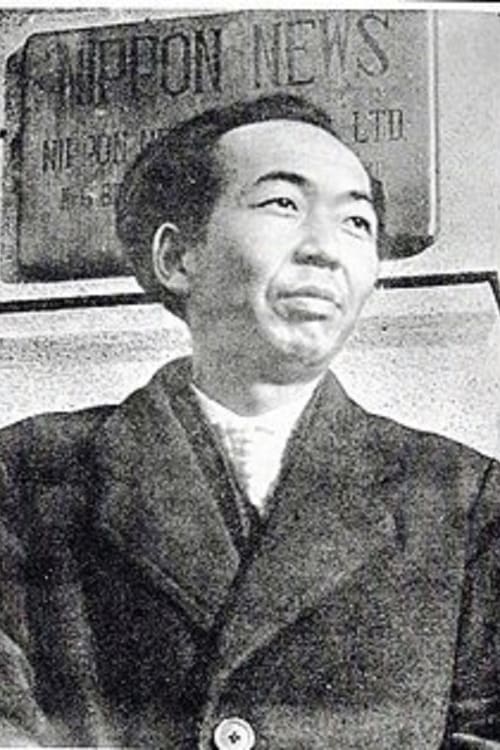
Satsuo Yamamoto
출생 : 1910-07-15, Kagoshima, Japan
사망 : 1983-08-11
약력
From Wikipedia, the free encyclopedia.
Satsuo Yamamoto (July 15, 1910 - August 11, 1983) was a Japanese film director.
Yamamoto was born in Kagoshima Prefecture on July 15, 1910. He dropped out of Waseda University to join Shochiku, where he worked as an assistant director to Mikio Naruse and others. He followed Naruse when he moved to PCL, and became a director in his own right after the company was reborn as Toho. During WWII he directed several pro-war propaganda films for them despite being a fervent member of the Japanese Communist Party (JCP), and after the war he rallied against the company as a driving force behind the union during the 1948 Toho labour dispute (in which the JCP was heavily involved), after which was ultimately fired.
He subsequently worked on independent films and made numerous intensely rebellious and substantial socially conscious works. From the 1960s onward, he directed a succession of major films including the Toyoko Yamasaki adaptations “The Ivory Tower” and “The Perfect Family”, the “Men and War” trilogy, and “Kotei no inai Hachigatsu”. This body of epic works led to him being dubbed “the Red Cecil B. DeMille”.
Three of his films, Shiroi Kyotō, Fumō Chitai and Ah! Nomugi Toge won the Mainichi Film Award for Best Film.
He died of pancreatic cancer on August 11, 1983 at the age of 73.
Description above from the Wikipedia article Satsuo Yamamoto, licensed under CC-BY-SA, full list of contributors on Wikipedia.

Director
The story of the silk industry and the young girls who worked as silk spinners in the early 1900s in Japan. The silk mills were located in Okaya which lies just beyond the Nomugi Pass. The women and girls worked in a hot, humid atmosphere without rest, and endured those conditions and sexual harassment to earn money for their poor families. Across the ocean, it was the great depression in America.

Screenplay
Taking the Chilean coup as an example, a group of young officers plan to overthrow the Japanese government on V-J Day. They aim to abolish the post-war constitution, restore the national army and revive the traditional spirit of Japan. As the conspiracy is exposed, the coup squadrons are wiped out one by one. The remaining squadron takes over a night train bound for Tokyo.

Director
Taking the Chilean coup as an example, a group of young officers plan to overthrow the Japanese government on V-J Day. They aim to abolish the post-war constitution, restore the national army and revive the traditional spirit of Japan. As the conspiracy is exposed, the coup squadrons are wiped out one by one. The remaining squadron takes over a night train bound for Tokyo.

Director

Director
Drama and intrigue about defense contracts and corruption.
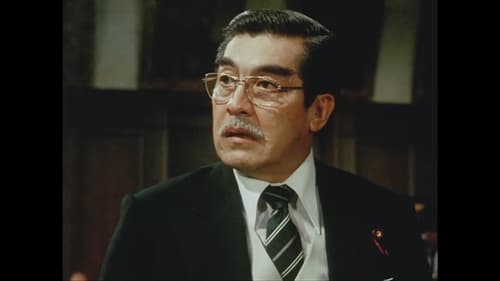
Director
호시노 관방장관의 비서가 2억엔을 빌리러 금융왕 이시하라를 방문하지만, 이시하라는 바로 거절한다. 이시하라는 이 관방장관을 신문기자 후루가키에게 조사하도록 시킨다. 후루가키를 통해 현 정부의 부패를 알게 된 이시하라는 가미야 의원을 통해, 국회 결산 폭로하려고 하지만, 가미야의 배신으로 결국 후루가키는 살해되고, 이시하라는 세금 탈세로 붙잡히게 된다.

Director
Adaptation of the novel by Toyoko Yamasaki.

Director
Final part of epic drama about war and its effects upon human beings, follows the fortunes of the Godai family through the Sino-Japanese War through the Soviet Union's sudden attack upon Japanese troops at the end of the war.

Director
Second part of an epic drama of war and its effects upon human beings, follows the fortunes of the Godai family from 1935 through Japan's invasion of China. Based on the novels by Jumpei Gomikawa, who also penned The Human Condition.

Director
Keisuke Godai, head of the upstart Godai family conglomerate, plans to strengthen ties with the hardliners in the Kwantung Army as they plan military expansion into Manchuria.

Director
BLOOD END is one of the great unknown films from Japan's golden era of the late 1960's. Starring NAKADAI Tatsuya in one of his best roles, this is the story of the Mito Tengu Group who attempted to overthrow the Shogunate at the beginning of the Bakumatsu Period. Their political aspirations led to countless assassinations, as well as senseless killing of innocent people who got in their way. Sentaro (NAKADAI), a farmer who's been severely beaten for his outspoken defiance of the government and the high taxes during a time of famine is befriended by one of the group's leaders, KADA Gentaro (KATO Go) and joins up. This is the masterpiece of director YAMAMOTO Satsuo (who is best known for the first film in the NINJA, BAND OF ASSASSINS series) the erstwhile 'Leftist' director, who used his films to make his political points. Stunning fight choreography, and ultra-violence make this one of the bloodiest films of that era. A powerful film Rare classic!

Editor
Captures the optimistic attitude and entrepreneurial spirit characteristic of the Vietnamese people, who remain positive despite ever-present reminders of the horros of the Vietnam War.

Director
Captures the optimistic attitude and entrepreneurial spirit characteristic of the Vietnamese people, who remain positive despite ever-present reminders of the horros of the Vietnam War.

Director
On the night of the summer Obon festival, Hagiwara Shinzaburo meets a beautiful courtesan named Otsuyu. Not knowing she's a ghost, he becomes infatuated by her.
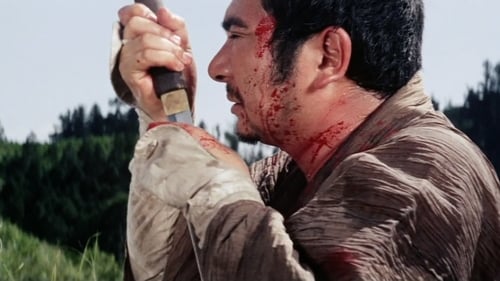
Director
When a local gambling house kidnaps some peasants because they failed to pay their debts, a rival gambling house pays their debts and sets them free.
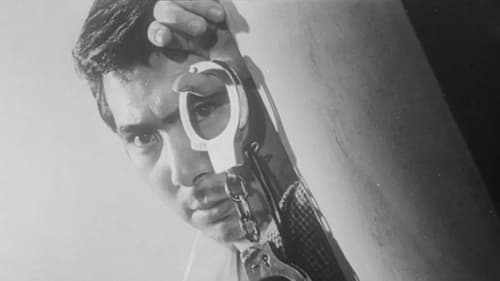
Director
Toramatsu is a very enthusiastic policeman. Believing that the police should help others he is dismissed the force when his pistol is stolen while doing one of his good deeds. He saves a child from drowning, restores it to his mother, then finds that someone has run off with his gun and later uses it to kill. Then he breaks up a group of hoodlums attacking a young girl named Mieko, and the police, his former friends, deciding he has gone too far, decide to sue him. On top of this the girl gets hurt and, consequently, a child from the kindergarten where Mieko teaches is kidnapped on his way home. Impersonating a policeman he tracks down the gangsters and rescues the boy. Due to this he also uncovers a scandal which allows the police to make a long due clean up in the political world. As a reward for all of this he wins the regard of the girl but now faces a stiff prison sentence for impersonating the policeman he had been and which, at heart, he truly remains.
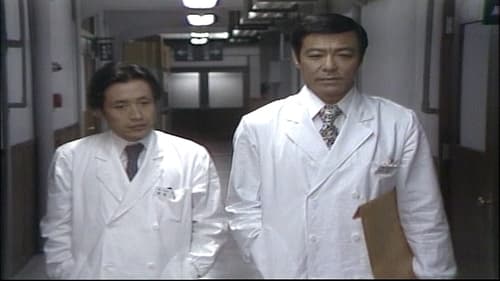
Director
The story contrasts the life of two doctors, former classmates and now both assistant professors at Naniwa University Hospital in Osaka. The brilliant and ambitious surgeon Goro Zaizen stops at nothing to rise to a position of eminence and authority, while the friendly Shuji Satomi busies himself with his patients and research.

Director
Keizo Tsujiguchi believes his wife Natsue was having an extramarital affair when their child was kidnapped and killed. He believes of her extramarital affair she was unable to watch over their child properly and blames her for their daughter's death. To exact revenge on his wife, he then adopts the killer's child without telling the truth to his wife or their newly adopted child.

Director
Based on true events surrounding a Korean student who had entered Japan unlawfully and escaped illegal alien internment.

Director
Murder case and trial.

Director
Gisuke Hayashida is an illegal dentist during the day and a burglar by night. One night during a burglary he witnesses a train derailment. Some communists are found guilty of causing the incident, but he knows it wasn't them. He can save innocent people but for that he must confess his own crime.

Director
The intense selfishness of a man brings him fame and fortune but not happiness.
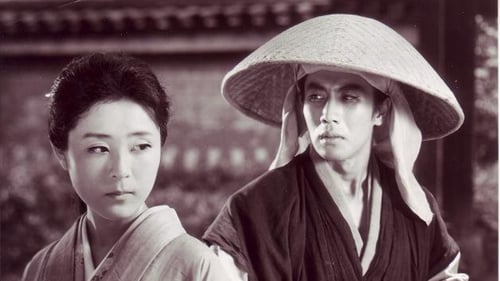
Director
평화로운 생활을 보내던 고에몬은 오다 노부나가의 닌자들에 의해 아이를 잃는다. 복수의 화신이 된 고에몬은 반 오다 노부나가 파인 사이카당에 들어가서 닌자 부활을 선언한다. 고에몬은 아케치 미쓰히데를 이용해서 오다 노부나가를 죽이게 된다. 오다 노부나가의 죽음 이후 천하의 형세는 변하게 되고, 권력을 잡은 도요토미 히데요시가 사이카당을 전멸시키려 군사를 일으킨다. 여기서 고에몬 혼자 살아남게 되어 도요토미 히데요시에게 복수를 하려고 하나, 결국 도중에 잡히고 만다.
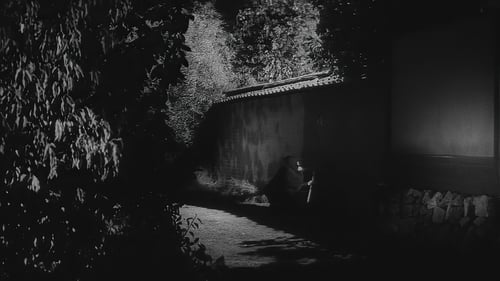
Director
거물 도둑으로 유명한 이시카와 고에몬을 권력에 대항하는 반역자로서 그린 무라야마 토모요시의 소설을 영화화한 작품. 탁월한 기능을 갖고 있으면서도 신분제도로 인해 최하층민으로서 살아갈 수 밖에 없는 이시카와를 이치카와 라이조가 연기하고 상업적으로도 크게 히트하여 시리즈화 되었다. 당시 황당무계한 내용이 유행하던 닌자영화에 리얼리즘과 호쾌한 액션, 권력투쟁이라는 모티브를 도입하여 시대극에 새로운 지평을 여는데 공헌한 사회파의 거장 야마모토 사츠오의 작품.

Director
Japanese drama.

Director
Satsuo Yamamoto's filmic depiction of the famous 1949 Matsukawa Incident.

Director
It's a story of the life of a man who advocated the necessity of sex education to children, which was unusual at the time, solely opposed to the amendment of the Peace Preservation Law, and was assassinated by a rightist prior to his opposition speech.

Director
Drama which shows the struggle of Fumiko, a female teacher, at work and at home.

Director
A lifetime story of a woman who stubbornly lives in a poor mountain village in post-war Japan.

Director
The humorous tale of Jimbei, a miller, and his wife Osen who live in complete happiness. But Osen's beauty attracts numerous would-be lovers among whom is the local governor, a timid creature, who is dominated by his high-born and beautiful wife, who dresses in a scarlet battle-tunic, a sign of his family's military merit around which he fabricates fantastic tales of his prowess in war. During the traditional festival when the villagers are released from observance of all social customs and restrictions, it is permissible for any man to attempt win the favors of the one he loves. However, the timid but romantic governor goes to the length of having the miller arrested to clear the way for his seduction of Osen. But Osen fights off his advances with an old hunting gun and dashes out of the mill. Jimbei, meanwhile, has escaped from jail and dashes home to finds the governor in his bed. Convinced that his wife has been violated, he decides to take an eye for an eye.

Director
Shochiku Production on typhoon

Director
"A unique left-wing comedy by Yamamoto.... A travelling theater troupe, led by Umagoro Ichikawa, comes to play in a mining town, and manages to sell every seat. Before the play begins, however, a miners' strike is announced, creating an uproar. In addition, the players find they have been cheated out of their profits by a crooked impresario. The socially naive actors join together with the progressive union members to create a political 'strike drama,' and learn much from each other in the process." --Alan Poul, Japan Society

Director

Director

Director
Based on Philippines war experiences. Military doctor Leutenant Hanada deserts with a local girl. The officer in command orders Lieutenant Uji to shoot Hanada. Uji takes a sharpshooter called Takagi and tracks him. At first Uji cannot forgive Hanada but as Uji is isolated from the main force he too starts to think of desertion.

Director
Just before the end of the war, Japanese soldier Kitani is released from prison, having served his term for theft. Told in flashback, viewers learn about Kitani's past and reasons behind his prison sentence.

Director
A period film about a peasant revolt in the region near Mount Fuji, occasioned by high officials' depriving the farmers of their water rights.

Screenplay
A period film about a peasant revolt in the region near Mount Fuji, occasioned by high officials' depriving the farmers of their water rights.

Director
An attempt is made to suppress a journalist's investigation of collusion between a rural police chief and the local gangster bosses.
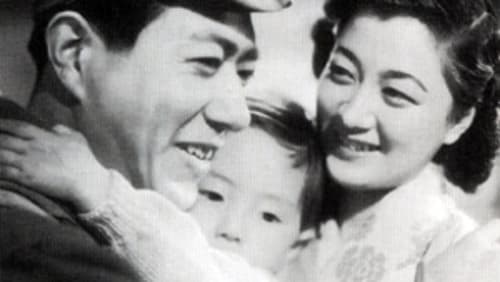
Director

Director
Set in wartime at the Yawata Steel Works in Tobata, Yawata, and Kokura cities in Fukuoka Prefecture, the film depicts people taking on the evil blast furnaces that prevent increased production. The film was shot on location at the actual Yawata Steel Works for an extended period of time, and special effects were created using a miniature blast furnace that closely reproduces the actual one.

Director

Director
9th directorial work by Yamamoto Satsuo.

Director

Screenplay

Director

Director
A priest in Hokkaido adopts a blind orphan girl, and as she grows up he finds himself falling in love with her.

Director
The prewar film Haha no kyoku (Mother's Melody, 1937) is known for its place in Japanese film history as one of the top three melodramas as well as for its authorship: Yamamoto Satsuo is an auteur not usually associated with filming melodramas. Yamamoto made the film right after he moved, along with his mentor Naruse Mikio, to the Toho film company. A number of subsequent postwar mother's films adopted some of its essences, making it a genre-defining moment in Japanese cinema. This great melodrama is atypical of Yamamoto's output, much of which deals with political corruption and inequities within social institutions and offers a strong anti-establishment appeal.
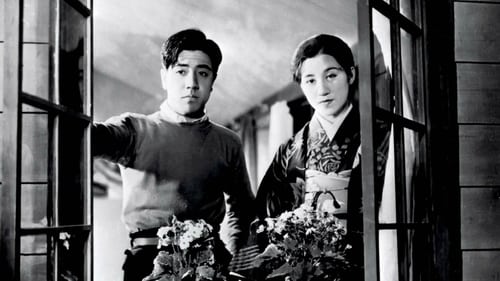
Assistant Director
Mikio Naruse’s final silent film is a gloriously rich portrait of a waitress, Sugiko, whose life, despite a host of male admirers and even some intrigued movie talent scouts, ends up taking a suffocatingly domestic turn after a wealthy businessman accidentally hits her with his car.

Director
The film is about a protest provoked when the university decided to restrict access to sports facilities to athletes, cutting out all other students. This is, strictly speaking, not a Prokino film. It was produced by the Waseda University Film Circle, which was organized by Kawazoe Shiro. Feature film directors Yamamoto Satsuo and Taniguchi Senkichi were apparently students at Waseda at the time and participated in the production.













